Dragon Boat Festival Explained: Origin, Definition, and Festival custom
- Chinese Culture
The Dragon Boat Festival is a traditional Chinese holiday with a rich history and deep cultural significance. Originating in ancient China, this festival is marked by various customs, including dragon boat racing and eating specific foods.
It is a time for communities to come together to honor ancient traditions, remember historical figures, and celebrate with family and friends. This traditional holiday has a long history and amalgamates multiple different festivals and traditions.
What is Dragon Boat Festival?
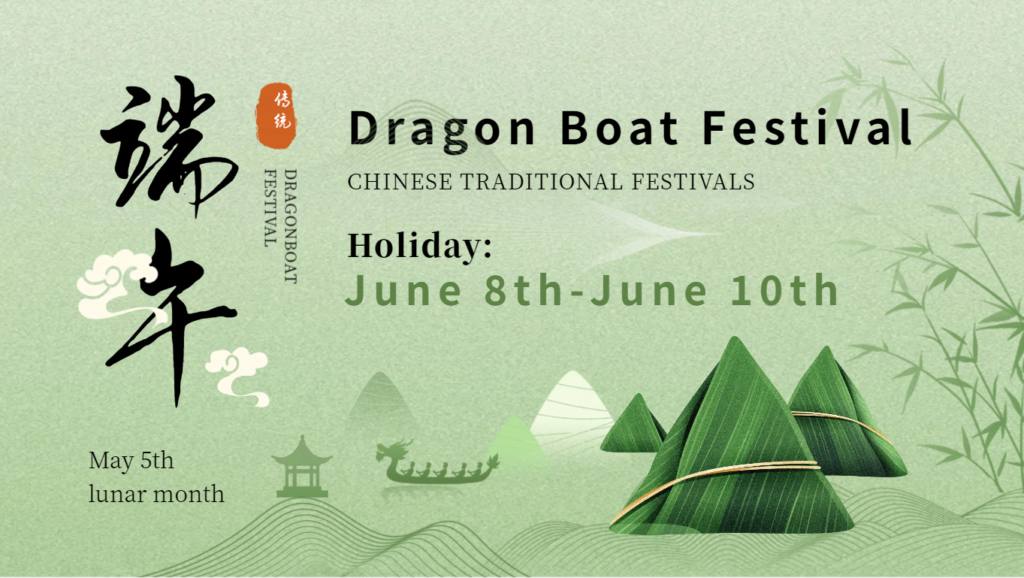
The Dragon Boat Festival (端午节 or Duānwǔjié in pīnyīn) or Duanwu Festival, is a Chinese holiday that falls on the fifth day of the fifth lunar month. It typically occurs in June on the Gregorian calendar.
In 2024, the Dragon Boat Festival will be celebrated on June 10, which falls on a Saturday. China will observe a three-day public holiday from Saturday, June 8, to Monday, June 10.
In addition to the Chinese mainland, many other Asian countries and regions, including Taiwan, Hong Kong, Macau, Singapore, Malaysia, Indonesia, Thailand, Vietnam, South Korea, and Japan, also celebrate the Dragon Boat Festival.
Why Is Dragon Boat Festival So Important?
The Dragon Boat Festival provides a platform for traditional arts and crafts, including boat-making, calligraphy, and the preparation of traditional foods. This helps preserve and promote these cultural practices.
The Dragon Boat Festival is one of the four traditional Chinese festivals, alongside the Spring Festival, Qingming Festival, and Mid-Autumn Festival.
In September 2009, UNESCO officially added the Dragon Boat Festival to the Representative List of the Intangible Cultural Heritage of Humanity, making it the first Chinese festival to be recognized as a World Intangible Cultural Heritage.
Dragon boat festival originated
The origin of the Dragon Boat Festival is subject to various interpretations, but the most well-known stories revolve around commemorating Qu Yuan and Wu Zixu.
Commemorate Qu Yuan
Qu Yuan was a patriotic poet and politician from the state of Chu during the Warring States period. He advocated for alliance with the state of Qi against the Qin, but was marginalized and slandered by the nobility, ultimately leading to his exile.
After the Qin army captured the Chu capital of Ying, Qu Yuan felt deep despair and indignation. On the fifth day of the fifth lunar month, he embraced a large stone and jumped into the Miluo River to end his life.
The people of Chu commemorated Qu Yuan by rowing boats to retrieve his body and throwing zongzi, eggs, wine, and other items into the river to prevent fish and shrimp from eating Qu Yuan’s body.
Commemorate Wu Zixu
The second legend associated with the Dragon Boat Festival is the commemoration of Wu Zixu on the fifth day of the fifth month.
Wu Zixu, originally from Chu, fled to Wu after his family was killed by the King of Chu. He helped Wu defeat Chu and desecrated the tomb of King Ping of Chu in revenge.
After King Helu of Wu died, his son Fuchai succeeded him. Despite Wu Zixu’s advice to destroy Yue completely, Fuchai refused and later believed slander against Wu Zixu, forcing him to commit suicide. Before his death, Wu Zixu asked for his eyes to be hung on the eastern gate to witness Wu’s downfall. Enraged, Fuchai ordered his body to be thrown into the river on the fifth day of the fifth month. Thus, the Dragon Boat Festival also commemorates Wu Zixu.
Avoiding bad luck in the fifth month
The Dragon Boat Festival is not only a commemoration of historical figures but also a blend of ancient nature worship, shamanistic beliefs, and practices for disease prevention and health.
In ancient times, May was considered an “evil month,” and the fifth day was seen as an “evil day.” People believed that malevolent spirits were strong during this time, leading to increased illness.
Therefore, customs such as hanging mugwort and calamus, wearing sachets, and drinking realgar wine, a Chinese alcoholic drink traditionally consumed during the Dragon Boat Festival, were all meant to ward off evil, prevent disease, and pray for health and safety.
How Do People Celebrate the Dragon Boat Festival?
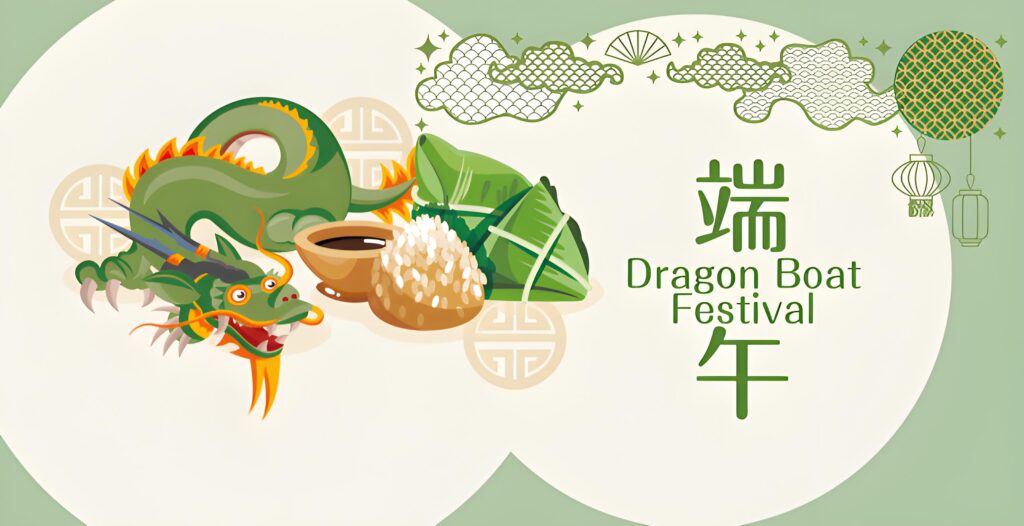
The Dragon Boat Festival is a traditional Chinese custom with a history of over two thousand years. Due to China’s vast geography, numerous ethnic groups, and the many stories and legends associated with the festival, various unique customs have emerged in different regions.
Dragon Boat Races
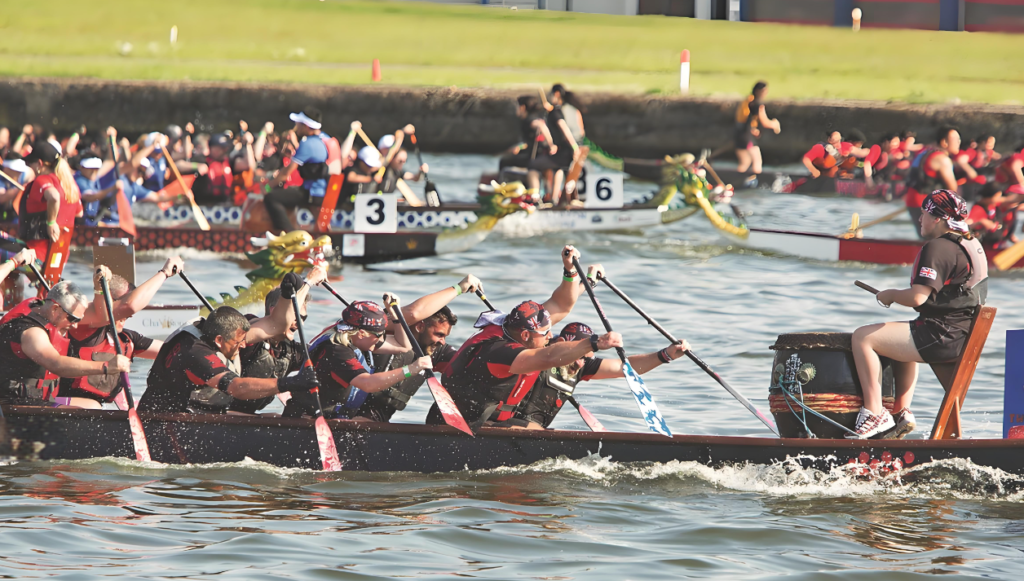
Dragon boat racing is the main custom of the Dragon Boat Festival, often referred to as dragon boating.
According to legend, it originated in ancient times when the people of Chu, unwilling to let their virtuous minister Qu Yuan drown, rowed out to save him. They raced their boats in a frantic search, but his body was not found after reaching Dongting Lake.
To commemorate this event, people began racing dragon boats annually on the fifth day of the fifth month. The races were also intended to scare away fish in the river to prevent them from eating Qu Yuan’s body.
Dragon boat teams are composed of 20 to 60 paddlers, depending on the boat’s size, and they paddle harmoniously to the beat of drums, symbolizing unity and strength. The boats are decorated with dragon designs, featuring a dragon’s head at the front and a tail at the back.
Eating Sticky Rice Dumplings
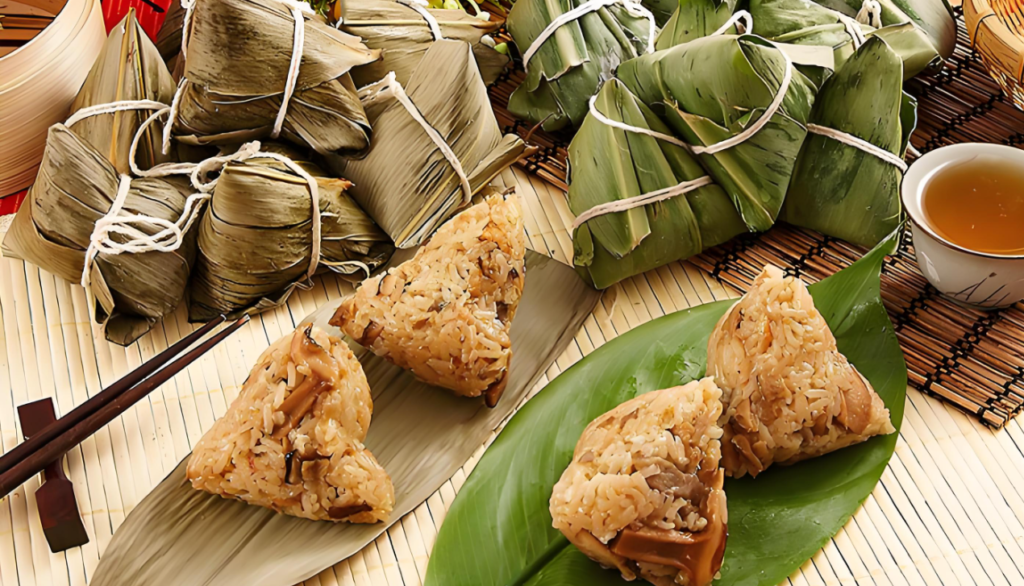
Eating zongzi on the Dragon Boat Festival is a traditional custom of the Chinese nation. According to legend, On the day Qu Yuan drowned himself, people threw zongzi into the river to prevent fish and shrimp from eating his body.
Zongzi are mainly wrapped using young reed leaves harvested from riverbanks and ponds, although in some regions bamboo leaves are also used; these are collectively known as zong leaves.
The traditional shape of zongzi is triangular. They are generally named based on their filling: those filled with glutinous rice are called “rice zongzi,” those with glutinous rice mixed with small beans are called “small bean zongzi,” and those with red dates are called “date zongzi.” Collectively, they are referred to as glutinous rice zongzi.
Pay Attention: If there has been a death in the family, particularly the death of an elder, the family should refrain from making zongzi for three years. This practice shows respect for the deceased and is a way to observe a period of mourning.
Hanging Chinese Mugwort and Calamus
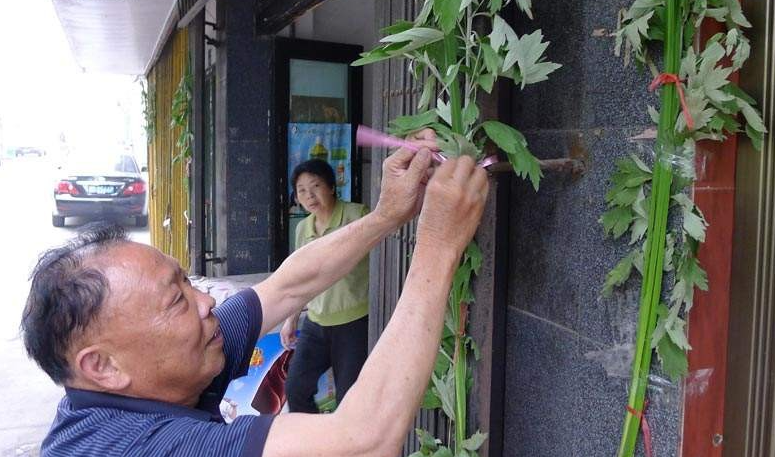
One of the traditional customs of the Dragon Boat Festival is hanging Chinese mugwort and calamus at the entrance of homes. These plants are believed to have protective properties, warding off evil spirits, insects, and diseases.
The practice is rooted in ancient Chinese medicine and folklore, which attribute health benefits and spiritual protection to these aromatic herbs. Families often tie them into bundles and hang them over their doors or windows to bring good luck and safety to their households.
Drinking Realgar Wine
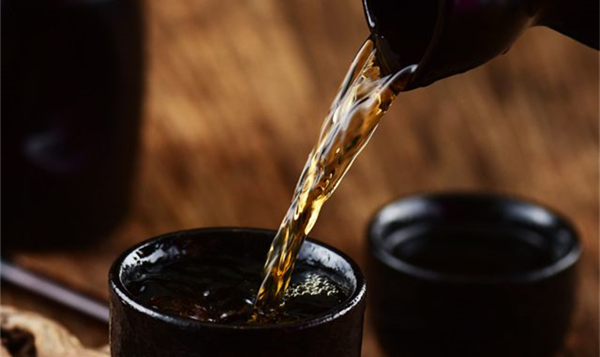
Realgar wine is traditionally consumed during the Dragon Boat Festival as it is believed to dispel evil spirits and toxins.
Realgar wine was originally a type of traditional Chinese medicine, with its main ingredient being realgar, a natural insect repellent.
Traditional Chinese medicine believes that realgar has properties to dispel evil spirits and toxins, reduce internal heat, improve eyesight, clear heat, detoxify, and prevent osteoporosis. Therefore, when people drink realgar wine, they also pray for good health and protection from illness.
Wearing Perfumed Sachets
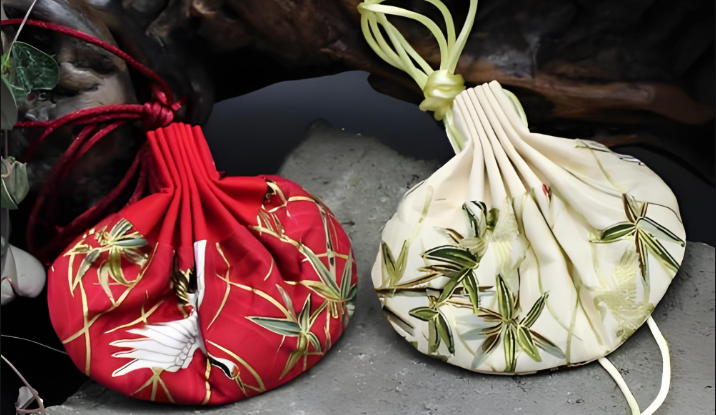
During the Dragon Boat Festival, children wear scented sachets, which are traditionally believed to ward off evil spirits and diseases (as in ancient times, people thought illnesses were caused by possession by demons).
In practice, these sachets are used as decorative adornments. The sachets contain cinnabar, realgar, and aromatic herbs, wrapped in silk cloth that emits a pleasant fragrance. They are tied with five-colored silk threads into various shapes, forming a string of small, charming, and cute ornaments.
These sachets are believed to protect against disease and evil spirits. The sachets are typically embroidered with intricate designs and hung around the neck or attached to clothing.
Making Five-Color Silk Thread Bracelets
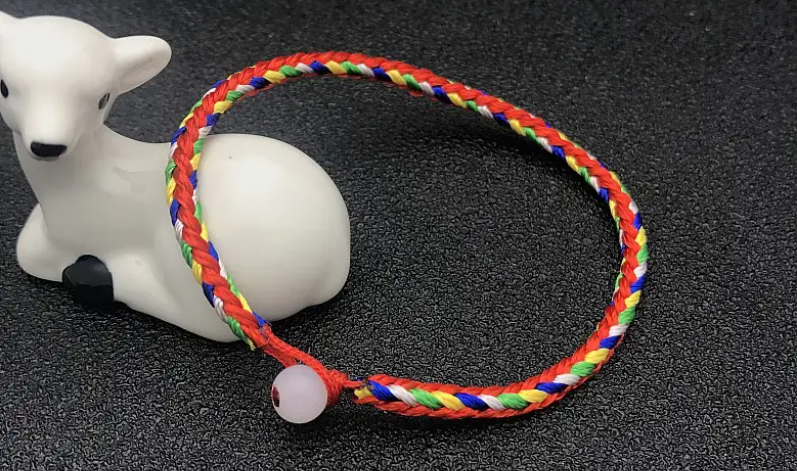
People, especially children, often wear bracelets made of five-colored silk threads. These bracelets are thought to ward off evil spirits and bring good fortune. The threads are typically removed and discarded only after the first rainfall after the festival, signifying the washing away of bad luck.
Hanging the Image of Zhong Kui
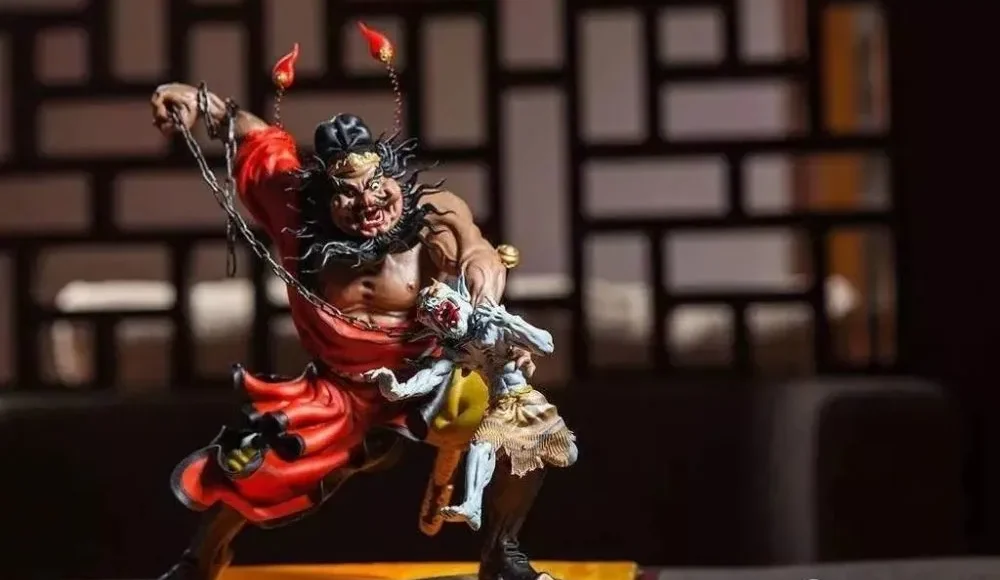
During the Dragon Boat Festival, some people hang images of Zhong Kui, a mythological figure known as a ghost catcher. Zhong Kui is believed to have the power to repel evil spirits and bad luck. His image is often depicted in vibrant, fierce artwork and is hung in homes to protect the inhabitants from harm and misfortune.
Name Of Dragon Boat Festival
“端 Duān” in ancient Chinese means beginning or initial, so “端五“ refers to the fifth day. Therefore, the fifth day of the fifth lunar month is called “Duanwu Festival.” In ancient times, the Chinese used the heavenly stems and earthly branches system to denote years, months, days, and hours. According to this system, the fifth month is known as the “Wu month,” and the fifth day of this month is “double five” or “重午.” Since the fifth day is also considered a yang (positive energy) day, it is also called “端阳.”
Statistics show that the Dragon Boat Festival has the most names among all traditional Chinese festivals, with more than twenty variations, such as Dragon Boat Festival, Double Fifth Festival, Duanyang Festival, Duanwu Festival, and Heavy Fifth Festival. Before the Tang Dynasty, the festival was commonly referred to as “May Fifth.” After the Tang Dynasty, “Duanwu” replaced “May Fifth” and other names, becoming the mainstream term for the festival.
In modern China, the significance of Qu Yuan and the Dragon Boat Festival continues to be celebrated, highlighting their enduring legacy in contemporary Chinese culture.

